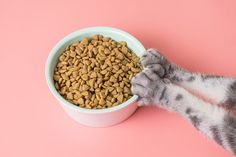
Choosing the right cat food can significantly impact your feline friend’s health and well-being. Specific dietary needs arise for indoor cats due to their limited exposure to outdoor environments. This article delves into the key factors to consider when selecting the best cat food for your indoor companion.
Understanding Indoor Cats’ Unique Needs

Indoor cats have distinct nutritional requirements compared to their outdoor counterparts. Here’s a breakdown of their specific needs:
- Reduced Physical Activity: As indoor cats have limited opportunities for hunting and exploration, they tend to burn fewer calories. This makes them more susceptible to weight gain.
- Hairball Prevention: Indoor cats groom themselves frequently, leading to the accumulation of hairballs. Their diet should include ingredients that help prevent hairball formation.
- Urinary Tract Health: Urinary tract issues are common among cats, especially males. A balanced diet can help maintain healthy urinary tract function.
- Nutritional Completeness: Since indoor cats rely solely on their food for nutrients, it’s crucial to choose a complete and balanced diet that provides all the essential vitamins and minerals.
Key Factors to Consider When Choosing Cat Food
- Ingredients:
- Protein: Cats are obligate carnivores, meaning they require a high protein diet. Look for foods with real meat as the primary ingredient.
- Carbohydrates: While cats can tolerate some carbohydrates, they should be kept to a minimum. Opt for foods with low levels of grains or grain-free options.
- Fats: Healthy fats are essential for your cat’s coat, skin, and overall health. Choose foods with a moderate amount of healthy fats, such as omega-3 fatty acids.
- Fiber: Fiber can help prevent hairballs and support digestive health. Look for foods containing soluble fiber, like beet pulp.
- Avoid Additives: Be wary of artificial additives, preservatives, and fillers. Opt for foods made with natural ingredients.
- Food Type:
- Dry Food: Dry food is convenient and can help with dental health. However, it’s important to ensure your cat is drinking enough water to compensate for the lack of moisture.
- Wet Food: Wet food provides a higher moisture content, which can be beneficial for hydration and urinary tract health. It’s also more appealing to some cats.
- Combination: A combination of dry and wet food can offer a balanced diet and cater to your cat’s preferences.
- Life Stage:
- Kittens: Kittens require a diet rich in protein and calories to support their rapid growth.
- Adults: Adult cats need a balanced diet to maintain their weight and overall health.
- Seniors: Senior cats may have decreased appetite or digestive issues. Look for foods specifically formulated for older cats with reduced calorie content and improved digestibility.
Recommended Cat Food Brands for Indoor Cats
While individual preferences and budgets vary, here are some reputable brands that offer high-quality cat food options for indoor cats:
- Royal Canin
- Purina Pro Plan
- Hill’s Science Diet
- Blue Buffalo
Remember: The best cat food for your indoor cat may vary depending on their individual needs, preferences, and any underlying health conditions. Consult with your veterinarian to determine the most suitable diet for your feline companion. By providing a nutritious and balanced diet, you can help your indoor cat live a long and healthy life.



